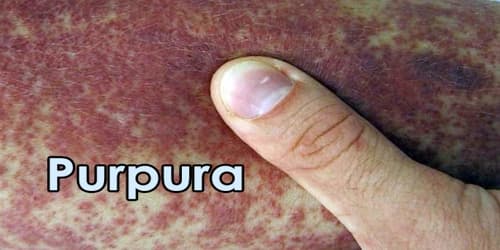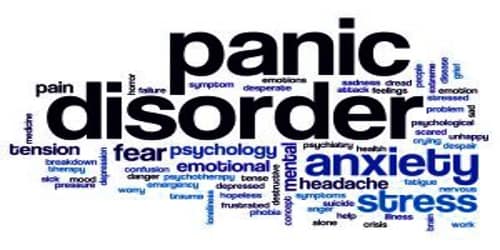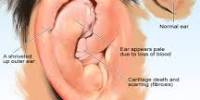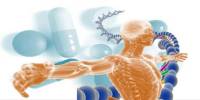Hypothyroidism
Definition: Hypothyroidism, also called underactive thyroid or low thyroid, is a condition in which our thyroid gland doesn’t produce enough of certain important hormones. It can cause a number of symptoms, such as poor ability to tolerate cold, a feeling of tiredness, constipation, depression, and weight gain. Occasionally there may be swelling of the front part of the neck due to goiter.
There are many glands in the body, but the thyroid gland is the small, butterfly-shaped organ at the base of our neck that makes hormones that regulate our metabolism — which affects how the body uses energy — and other processes.
Since the main purpose of thyroid hormone is to “run the body’s metabolism,” it is understandable that people with this condition will have symptoms associated with a slow metabolism.
Women, especially those older than age 60, are more likely to have hypothyroidism. Hypothyroidism upsets the normal balance of chemical reactions in their body. It seldom causes symptoms in the early stages, but over time, untreated hypothyroidism can cause a number of health problems, such as obesity, joint pain, infertility, and heart disease.
The diagnosis of hypothyroidism, when suspected, can be confirmed with blood tests measuring thyroid-stimulating hormone (TSH) and thyroxine levels. Hypothyroidism can be treated with levothyroxine. Thyroid medication is safe in pregnancy. While a certain amount of dietary iodine is important, excessive amounts can worsen certain types of hypothyroidism.
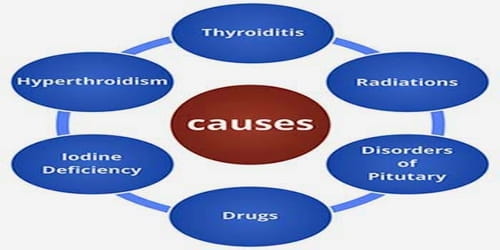
Causes and Risk factors of Hypothyroidism: Hypothyroidism is caused by inadequate function of the gland itself (primary hypothyroidism), inadequate stimulation by a thyroid-stimulating hormone from the pituitary gland (secondary hypothyroidism), or inadequate release of thyrotropin-releasing hormone from the brain’s hypothalamus (tertiary hypothyroidism).
The most common cause of thyroid gland failure is called autoimmune thyroiditis (also called Hashimoto’s thyroiditis), a form of thyroid inflammation caused by the patient’s own immune system. The second major cause is the broad category of “medical treatments.”
Radiation used to treat cancers of the head and neck can affect people’s thyroid gland and may lead to hypothyroidism. A number of medications can contribute to hypothyroidism. One such medication is lithium, which is used to treat certain psychiatric disorders.
Although anyone can develop hypothyroidism, people are at an increased risk if they:
- Are a woman older than age 60
- Have an autoimmune disease
- Have a family history of thyroid disease
- Have other autoimmune diseases, such as rheumatoid arthritis or lupus, a chronic inflammatory condition
- Have been treated with radioactive iodine or anti-thyroid medications
- Received radiation to people’s neck or upper chest
- Have had thyroid surgery (partial thyroidectomy)
- Have been pregnant or delivered a baby within the past six months
There are several other rare causes of hypothyroidism, one of them being a completely “normal” thyroid gland that is not making enough hormone because of a problem in the pituitary gland. If the pituitary does not produce enough thyroid stimulating hormone (TSH) then the thyroid simply does not have the “signal” to make hormone.
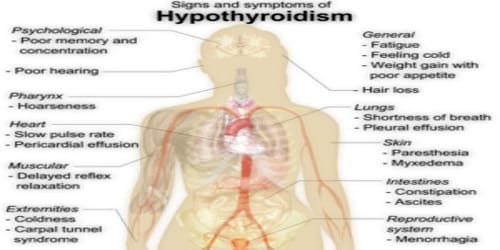
Signs and Symptoms of Hypothyroidism: The signs and symptoms of hypothyroidism vary, depending on the severity of the hormone deficiency. But in general, any problems people have tend to develop slowly, often over a number of years. Numerous symptoms and signs are associated with hypothyroidism and can be related to the underlying cause, or a direct effect of having not enough thyroid hormones. Hypothyroidism signs and symptoms may include:
- Fatigue
- Weakness
- Weight gain or increased difficulty losing weight
- Coarse, dry hair
- Dry, rough pale skin
- Hair loss
- Cold intolerance (people can’t tolerate cold temperatures like those around them)
- Muscle cramps and frequent muscle aches
- Constipation
- Depression
- Irritability
- Memory loss
- Abnormal menstrual cycles
- Decreased libido
Each individual patient may have any number of these symptoms, and they will vary with the severity of the thyroid hormone deficiency and the length of time the body has been deprived of the proper amount of hormone.
Advanced hypothyroidism, known as myxedema, is rare, but when it occurs it can be life-threatening. Signs and symptoms include low blood pressure, decreased breathing, decreased body temperature, unresponsiveness, and even coma. In extreme cases, myxedema can be fatal.
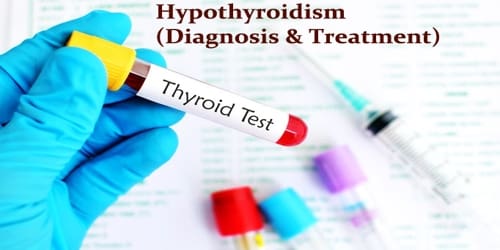
Diagnosis and Treatment of Hypothyroidism: If people have many of the common symptoms of hypothyroidism, such as dry skin, constipation, fatigue, and a hoarse voice, they could make an appointment with the doctor to check for hypothyroidism.
Laboratory testing of thyroid stimulating hormone levels in the blood is considered the best initial test for hypothyroidism; a second TSH level is often obtained several weeks later for confirmation. Because the TSH test is the best screening test, the doctor will likely check TSH first and follow with a thyroid hormone test if needed.
TSH tests also play an important role in managing hypothyroidism. They help the doctor determine the right dosage of medication, both initially and over time. The doctor can perform various screenings, including:
- A physical exam
- A blood test
- An imaging scan
If these tests show an elevated thyroid-stimulating hormone (TSH) and low levels of thyroid hormones, like free T4, total T3, or free T3, it may be an indication that you have hypothyroidism.
A diagnosis of hypothyroidism without any lumps or masses felt within the thyroid gland does not require thyroid imaging; however, if the thyroid feels abnormal, diagnostic imaging is then recommended. The presence of antibodies against thyroid peroxidase (TPO) makes it more likely that thyroid nodules are caused by autoimmune thyroiditis, but if there is any doubt, a needle biopsy may be required.
In pregnancy, subclinical hypothyroidism is defined as a TSH between 2.5 and 10 mIU/l with a normal thyroxine level, while those with TSH above 10 mIU/l are considered to be overtly hypothyroid even if the thyroxine level is normal. Antibodies against TPO may be important in making decisions about treatment, and should, therefore, be determined in women with abnormal thyroid function tests.
There are a number of treatments for hypothyroidism, usually involving medication. Some people also use alternative medicines to help them manage their disease. Treatment for hypothyroidism generally involves taking the oral medicine levothyroxine, sold under the brand names Levothroid, Synthroid, and others.
Some people with hypothyroidism choose to supplement their treatment with alternative medicines, often to help with symptoms like fatigue, weight gain, stress, and mental fog. Treatments can include yoga, meditation, hypnosis, vitamins, or special diets.
Information Source:

